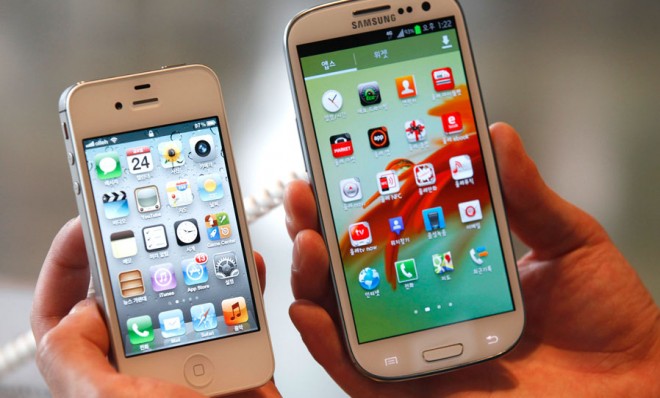Why Apple isn't making a big iPhone
"For us, winning has never been about making the most."

A free daily email with the biggest news stories of the day – and the best features from TheWeek.com
You are now subscribed
Your newsletter sign-up was successful
Speaking at the D11 conference on Tuesday night, Apple CEO Tim Cook was evasive and opaque — as usual.
Has Apple lost its cool? he was asked. "Absolutely not," Cook said. Is Apple working on a smart TV? "I don't want to give anyone any ideas." What about a wearable computer, like a smartwatch? "I think the wrist is interesting."
Cook did, however, offer a bit more clarity when it came to a key question that's been coming up more frequently as investors get fidgety: Why doesn't Apple make different kinds of iPhones?
The Week
Escape your echo chamber. Get the facts behind the news, plus analysis from multiple perspectives.

Sign up for The Week's Free Newsletters
From our morning news briefing to a weekly Good News Newsletter, get the best of The Week delivered directly to your inbox.
From our morning news briefing to a weekly Good News Newsletter, get the best of The Week delivered directly to your inbox.
Apple offers different kinds of iPods aimed at different consumers. There's the iPod Touch, the Classic, the Nano, and the Shuffle — which all appeal to different needs. Even Apple's tablet portfolio has followed suit with the iPad Mini. So why doesn't the company offer an iPhone with a larger screen?
"We haven't so far," said Cook. "That doesn't shut out the future." Cook continued:
It takes a lot of really hard work to do a phone when you manage the hardware and software and services in it. We've put our focus on doing that right. We haven't been focused on working multiple lines. Think about the evolution of the iPod over time. The shuffle didn't have the same functionality as other products. It was a really good product, but it played a different role — it was strikingly different. The mini played a different role than the classic did. If you remember when we brought out the mini people said we'd never sell any. The mini proved that people want something lighter, thinner, smaller. My only point is that these products all served a different person, a different type, a different need. For the phone that is the question. Are we now at a point that we need to do that? [via CNN Money]
Cook went on to say that a large screen "comes with a lot of tradeoffs." Do photos on a larger screen "show the proper color?" he asked. "The white balance, the reflectivity, battery life. The longevity of the display. There are a bunch of things that are very important." Cook added: "At this point we think the Retina display is the best. In a hypothetical world where those tradeoffs didn't exist, you could see a bigger screen as a differentiator."
Translation? "The iPhone portfolio may still arrive," says analyst Horace Dediu. "It hasn't so far because the cost/benefit is not there for Apple. On one hand it would take a great deal more sourcing effort and risk while dealing with constraints in production. On the other it would not offer meaningful additions to the customer base. At least so far."
A free daily email with the biggest news stories of the day – and the best features from TheWeek.com
Critics have been calling on Cook and Co. to make a major move, largely because Android continues to gobble up smartphone market share at both the high- and low-end segments. Cook, however, asserts that he isn't concerned with iPhone market share; Apple is more keen on profit margins from hardware. As Virtual Pants noted earlier this week in response to a widely read Techpinions editorial:
People often forget that Google and Apple are playing the same game with different goals in mind. Apple strives to maximize profitability in hardware sales. Google, on the other hand, is striving for maximum market share, providing the most users for its services. This is a rare, if not unique, war where both Apple and Google can win, and that seems to be very confusing to people. [Virtual Pants]
"For us, winning has never been about making the most," Cook said. "We make the best PC, but we don't make the most."
-
 The ‘ravenous’ demand for Cornish minerals
The ‘ravenous’ demand for Cornish mineralsUnder the Radar Growing need for critical minerals to power tech has intensified ‘appetite’ for lithium, which could be a ‘huge boon’ for local economy
-
 Why are election experts taking Trump’s midterm threats seriously?
Why are election experts taking Trump’s midterm threats seriously?IN THE SPOTLIGHT As the president muses about polling place deployments and a centralized electoral system aimed at one-party control, lawmakers are taking this administration at its word
-
 ‘Restaurateurs have become millionaires’
‘Restaurateurs have become millionaires’Instant Opinion Opinion, comment and editorials of the day